This website is in the beta phase of development, meaning that it is currently being worked on. We have decided to make OMNIKA available to the public during all development phases. It may not contain all planned features and services. Things may be incomplete or partially broken, which may hinder user experience.
You can expect the following:
- Minor bugs
- Minor downtime
- Ongoing testing and rapid feature release cycles
- Missing features
- Average load times
If you are doing academic or scholarly research, it's pretty safe to rely on our data to be accurate and up to date. For more information, check our release notes.
About
We are on a mission to digitize and make freely available everything and anything related to the world's mythological contents.
Overview
OMNIKA is an American 501(c)(3) nonprofit organization that operates a digital mythological library. Our mission is to digitize, organize, and make freely available all the world's mythological contents. We are trying to build the world's largest digital index of mythological stories, deities, belief systems, artifacts, translations, ancient languages, maps, datasets, and much more. In addition to the OMNIKA website, OMNIKA manages several other projects that are related to the organization's mission. OMNIKA was started in 2019 by Boban Dedović; and he serves as the Executive Director of the OMNIKA Foundation.
Snapshot
Purpose
Almost every culture has relevant mythology that explains where we came from, why things are the way they are, and a number of other things. OMNIKA's goal is to collect, organize, index, and quantify all of those data in one place and make them available for free.
Basic facts
Who: The OMNIKA Foundation is a 501(c)(3) nonprofit organization based in Nevada, USA. It is supported by a community of scholars, subject-matter experts, and volunteers who contribute their time. The founder and Executive Director of the organization is Boban Dedović.
What: OMNIKA is a digital mythology library.
When: The project was started in January 2019 and attained its 501(c)(3) nonprofit status in December 2021.
Where: The main contributors of OMNIKA are from the United States, although volunteers and experts are contributing remotely from around the world. The OMNIKA Foundation was duly organized and incorporated in the state of Nevada, USA.
Why: OMNIKA was built because there was no other online tool that offered comprehensive, credible, and well-cited information on all the world's mythological contents. Myths are some of the earliest records of human thought and thus important for understanding the history of mankind.
Name and logo
The name "OMNIKA" is a combination of two words: Latin omnis, meaning "every," [1] and the Egyptian word Ka, which may be obscurely defined as "life-force." [2]
The OMNIKA logo is represented by juxtaposing simplified versions of the all-seeing eye of Horus and the two raised arms of embrace as shown by the Egyptian Ka hieroglyph.
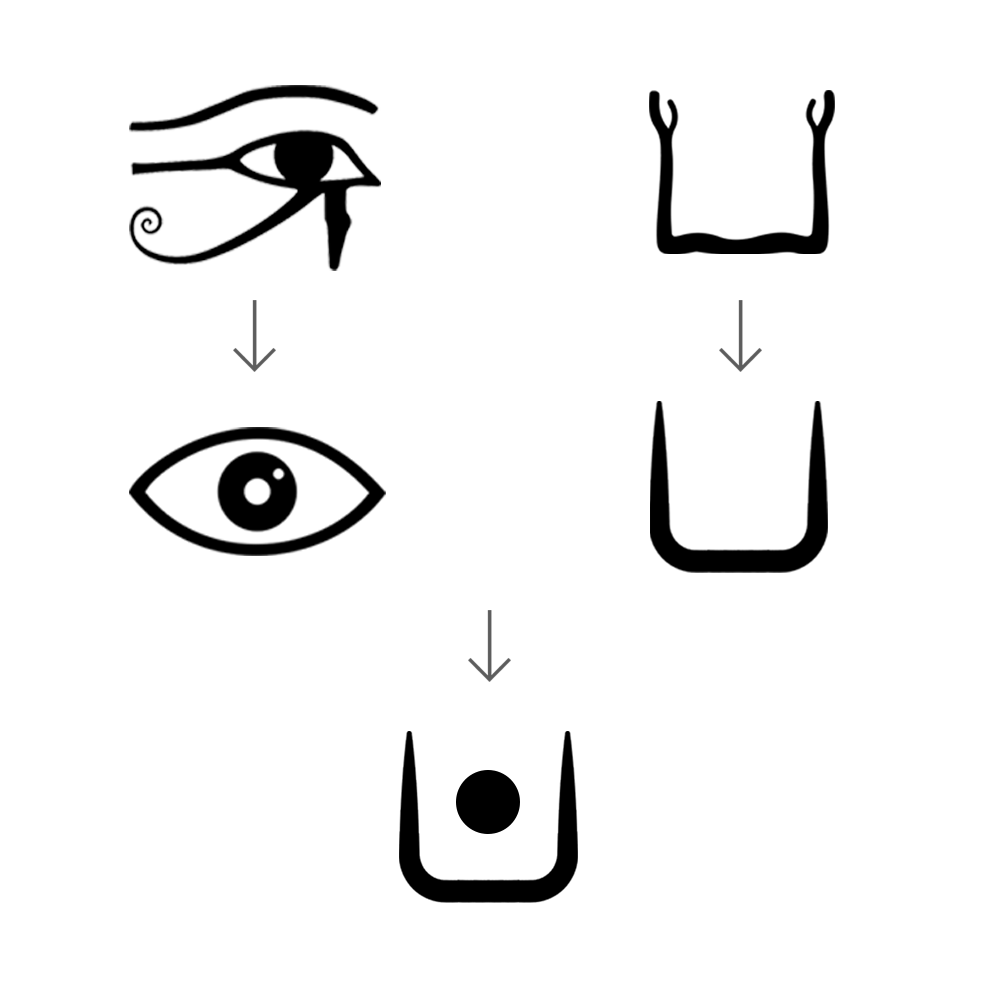
OMNIKA's mythology index
Approach
The way we store data in our index is different from other websites. All of our records are collected in a granular structured data format. That is, for each type of record, we utilize hundreds of predefined fields. This approach increases the time it takes to add new records. However, it also provides us with unique capabilities that have not been exercised before. For example, we can readily create charts and graphs across an infinite number of dimensions.
Given this, OMNIKA is therefore a data science project that intersects the fields of humanities and computer science. Our subject being religion, and our design respecting science, not theology,[3] we consider chiefly those things that we can quantify.
Directories
| OMNIKA DataStore an open-access data science resource for researchers, authors, and computer scientists interested in mythology. The service provides raw data from trusted sources, data visualizations, data analysis tools, and other digital resources. | |
| OMNIKA Library a digital library dedicated to mythology. The service provides curated lists of authors and their works, many of which can be read using the OMNIKA Reader experience. Anyone can use OMNIKA Library to find authors, books, articles, websites, and other authoritative academic sources related to mythology. | |
| OMNIKA Lingua a bibliographic database of mythology-related language information. The index includes languages, their dialects, language families, and writing systems, or scripts. Students and researchers can use OMNIKA Lingua to learn more about the linguistic aspects of mythology and its study. It is also a trusted gateway to authoritative sources like grammars, sign lists, and dictionaries. | |
| OMNIKA Maps a mythology-focused web mapping platform. The service provides location-based information like custom maps of historical regions, ancient civilizations, ancient cities, natural geographical features, and fictional places. Researchers can use OMNIKA Maps to learn more about the places referenced in mythological stories. | |
| OMNIKA Museum a digital museum solely dedicated to the field of mythology. The service allows anyone to find clay tablets, papyri, and other forms of material culture from antiquity. Anyone can use OMNIKA Museum to learn more about important artifacts as well as their institutional ownership. | |
| OMNIKA Mythology a bibliographic index of all the world's mythological stories. The service provides a catalog of all types of myths, divine beings, and belief systems. Anyone can use OMNIKA Mythology to learn more about myths from around the world in an easy-to-read, unbiased format. | |
| OMNIKA Symbols a structured database of mythological symbols and iconography depicted in material culture or mentioned in writing. Students and researchers can use OMNIKA Symbols to learn more about the visual elements referenced throughout human history. |
Websites managed by OMNIKA
The OMNIKA Foundation also owns and operates other websites related to mythology and ancient studies.
OMNIKA apps
| Allo Website ・ https://ancientlanguages.org A modern and user-friendly dictionary platform for dead ancient languages. | |
| eHammurabi (Electronic Hammurabi) Website ・ https://eHammurabi.org A digital version of the Law Code of Hammurabi, including cuneiform, transliteration, normalization, and an English translation. | |
| Mindspace Studio Podcast Website ・ https://mindspace.studio A psycholinguistics podcast that discusses the word "mind" across cultures, languages, and language families. |
OMNIKA's first principles
Mission statement
The mission of the OMNIKA Foundation is to digitize, organize, and make freely available all the world's mythological contents.
Values
No. 1: Free for all—all for free. Share everything with the world and don't charge a fee.
No. 2: Cite sources. Provide citations for sources and link to original source materials.
No. 3: No agenda, opinion, interpretation, or analysis. We believe that personal attitudes and beliefs don't add value to our index or general understanding of humanity. Cultural stories are also unique, different, and not something we want to "unify." For that reason, we believe that the only way for us to make our vision a reality is to remove as much subjectivity, analysis, and personal bias as possible. OMNIKA does not and must not infer conclusions through interpretation; instead, we must act as a neutral conduit between people and historical records.
No. 4: Moderate humanistically. Myths are intimate and incredibly important narratives in peoples' lives. OMNIKA will not contain or allow the transmission of records that degrade cultures, religions, or individuals. Reporting and flagging tools must be considered mission-critical to the service.
Cultural sensitivity statement
OMNIKA deeply respects the delicate nature of content in its digital library. We will immediately remove any user generated content that is offensive, derogatory, or otherwise against our mission.
We understand that our platform must only be used for positive educational purposes and must not be used as a mechanism to spread hate, racism, or pejorative statements. Please report any content you believe violates this principle. We will follow through with an investigation and remove any content that violates our policies.
Governance
Leadership
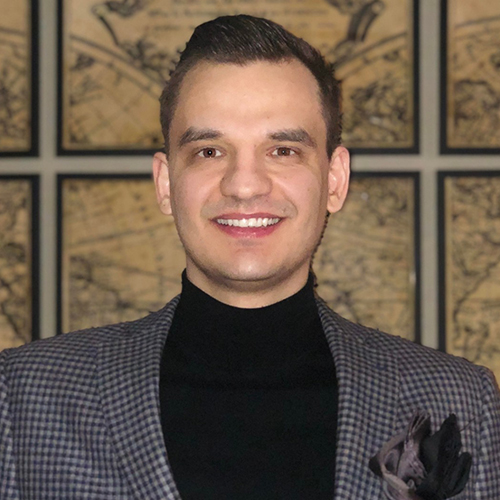 | Boban Dedović Founder & Executive Director · Serving since January 2019 Boban started the OMNIKA website in early 2019 and incorporated the OMNIKA Foundation in 2021. As the Executive Director of the nonprofit, he also serves as its Chief Software Architect. Boban holds both a B.A. in Religions of Antiquity and a B.S. in Psychology from the University of Maryland, College Park, and an M.A. in Humanities from the University of Chicago. Author bio › |
Advisory board
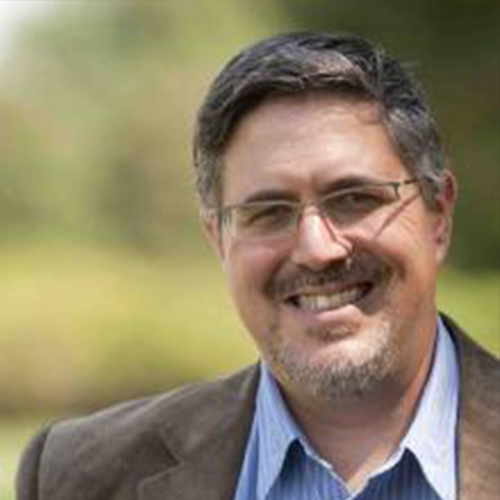 | Dr. Matthew J. Suriano Serving since June 2023 Dr. Suriano is a biblical scholar, archaeologist, and Associate Professor at the University of Maryland, College Park. He earned his Ph.D. in Near Eastern Languages and Cultures at the University of California, Los Angeles. Author bio › |
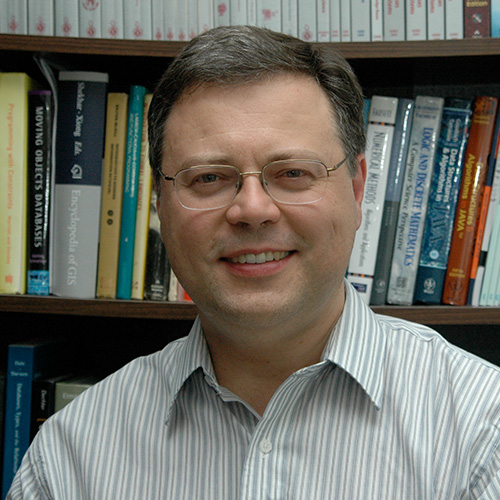 | Dr. Peter Z. Revesz Serving since June 2023 Dr. Revesz is a computer scientist, linguistics researcher, and Full Professor at the University of Nebraska, Lincoln. He earned his Ph.D. in Computer Science from Brown University. Before becoming a professor, he was a postdoctoral fellow at the University of Toronto. Author bio › |
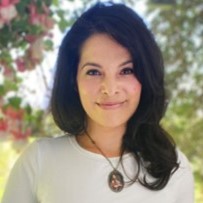 | Dr. Anna Lisa Derr Serving since June 2023 Dr. Derr is an educator, scholar, speaker, and author. She earned a B.A. in Theater from Willamette University and a Ph.D. in Mythological Studies from Pacifica Graduate Institute. |
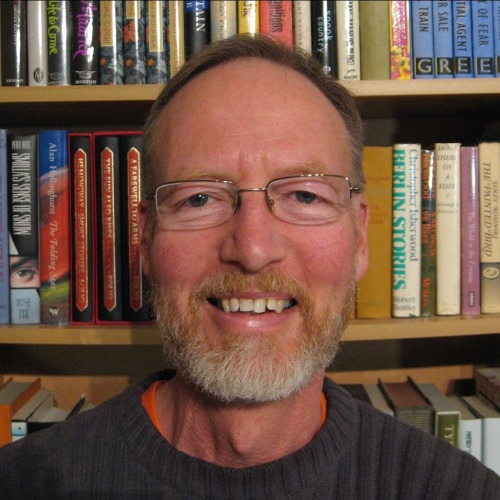 | Orin Hargraves Serving since June 2023 Orin is an author, lexicographer, and linguistics lecturer at the University of Colorado, Boulder. He earned a B.A. with Honors in the Humanities from the University of Chicago. He is a long-time member and past president of the Dictionary Society of North America. He has contributed definitions and other content to dictionaries from Cambridge, Oxford, Merriam-Webster, Macmillan, Harper-Collins, and others. |
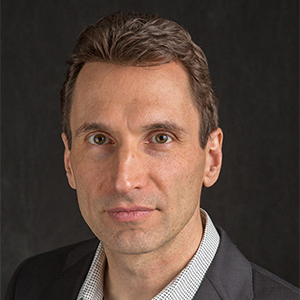 | Marcel Kuijsten Serving since June 2023 Marcel is an author, speaker, and the Executive Director of the Julian Jaynes Society, a nonprofit dedicated to promoting the life and work of Julian Jaynes. He holds a B.A. in English, a B.A. in Psychology, and an M.B.A. from the University of Nevada, Las Vegas. Author bio › |
Background
Our creation myth
In January 2019, we were interested in carefully reviewing and analyzing the first written records of humanity. We assumed a user-friendly, well-cited, jargon-free service existed somewhere. When we couldn't find anything, we decided that it was therefore necessary to build our own. OMNIKA started in February 2019 as a spreadsheet containing information about creation myths. We soon realized that other people would likely benefit from this same information and launched the Alpha version in March. The project soon developed into a more comprehensive mythology index.
News and milestones
The OMNIKA Foundation announces the formation of its Advisory Board. More
The OMNIKA Foundation attains its federal tax-exempt status as a 501(c)(3) nonprofit organization. More
Version β.1.1.0 is released to the public. More
The OMNIKA Foundation is incorporated as a Nevada-based 501(c)(3) nonprofit organization. More
Version α.0.1.0 is released to the public. More
OMNIKA begins as a spreadsheet containing creation myths.